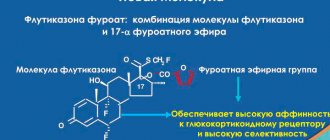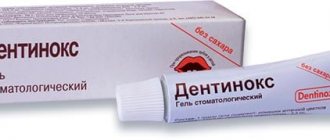Disturbances in the functioning of the child’s urinary system indicate the possible development of cystitis. The cause of the disease is infection by bacteria that enter the bladder. Due to the anatomical features of the reproductive system, girls are most susceptible to cystitis. Provoking factors that cause the inflammatory process are hypothermia of the body and decreased immunity. You should not postpone a visit to the doctor if you suspect a disease. The earlier treatment is started, the more successful it will be. Along with antibiotics, the drug Phytolysin is often prescribed. It has a completely natural composition. Enhances the therapeutic effect of medications without causing harm to the child’s body. Phytolysin is prescribed to children at any age.
The earlier treatment is started, the more successful it will be.
What is Phytolysin
The drug is a viscous pasty substance of greenish-brown color with a characteristic mint aroma and herbal taste. Its base: a mixture of powdered medicinal plants:
- parsley root;
- birch leaves;
- fenugreek seed;
- wheatgrass root;
- goldenrod;
- knotweed;
- onion peel;
- lovage root;
- horsetail.
Essential plant oils are used as additional therapeutic ingredients: citrus, pine, mint and sage. The binder components of the product include glycerin, agar, starch and water.
Fitolysin paste is packaged in metal tubes with a capacity of 100 ml. Intended for oral use - inside.
Contraindications
The pronounced diuretic effect of herbal components excludes the use of the drug in patients with the following conditions:
- Jades.
- Kidney failure.
- Presence of phosphate stones in the kidneys.
- Nephrosis.
- Diseases of the digestive system (gastritis, ulcers, pancreatitis).
- Hepatitis, cholelithiasis, cirrhosis.
Phytolysin should not be taken if you are sensitive to any component of its composition.
Due to the ability of the drug to enhance or weaken the effect of other medications, special care must be taken when combining. Phytolysin enhances the healing properties of paracetamol, anticoagulants, and other substances. The absorption of carotene and tocopherol when used together is reduced.
The advantage of herbal medicines is that they are unlikely to cause negative effects when used. They occur in rare cases, usually being the result of individual sensitivity to one of the components of the drug. The instructions for use warn of side effects, expressed as an allergic reaction, accompanied by the appearance of a rash on the skin, itching and burning. Sometimes nausea, diarrhea, vomiting, decreased sensitivity of taste buds, photosensitivity (increased sensitivity to sunlight) are possible. If such symptoms appear, stop using the drug.
Phytolysin does not affect the transmission of nerve impulses, therefore it can be used by people whose field of activity requires coordination of movements and reaction speed.
What is Phytolysin used for?
Phytoncides, alkaloids, saponins, minerals and other active substances provide the medicinal properties of the drug. It has a pronounced anti-inflammatory, astringent and diuretic effect, reduces pain, physical discomfort and other symptoms of cystitis. As a result of using Phytolysin:
- excess sodium and chlorine are eliminated from the body;
- glomerular filtration is activated;
- the proliferation of pathogens in the urinary tract is blocked;
- uric acid levels decrease;
- the effect of ascorbic acid and antioxidants is prolonged;
- the removal of sand and small stones from the kidneys is accelerated, and another attack of urolithiasis is prevented.
The drug helps restore well-being in acute and chronic inflammation. Including:
- urethritis, cystitis;
- pyelitis;
- deposition of urinary stones;
- dysfunction of the kidneys and urinary tract due to surgical operations.
There is a therapeutic effect of diuretic paste for oxalate kidney stones: their loosening and removal of sludge naturally with regular use of the medicine.
Pharmacological effect
Plants in Phytolysin have diuretic, anti-inflammatory, astringent, antimicrobial and regenerating properties. In combination, they have a comprehensive healing and restorative effect, and essential oils enhance their effect.
After oral administration, active substances:
- inhibit reverse resorption in the kidney tubules, increase filtration in the glomeruli;
- disinfect the urinary tract;
- help increase urine volume;
- stimulate the leaching of sand and small stones from the kidneys and bladder;
- slow down the metabolization of vitamin C, the production of oxalic acid, and improve the excretion of uric acid;
- slow down the loss of mineral sediment in the urine, stop the progression of urolithiasis;
- eliminate pain, spasms and physical discomfort caused by urological disorders.
Phytolysin copes well with staphylococci and other gram-positive pathogens. The diuretic effect that the drug has is not accompanied by a decrease in the level of electrolytes in the body.
How to take Phytolysin correctly
For inflammation of the bladder, kidneys, urolithiasis and for the prevention of recurrent attacks, Phytolysin should be taken orally as a mixture:
- squeeze out about 1 tsp. funds in a glass;
- dilute with a small amount of water and drink;
- repeat taking the drug up to 4 times a day 1 hour after meals.
To soften the harsh taste of the medicine, you can add a little sugar, sweetener or honey to it.
Indications
Phytolysin can be used as a symptomatic, complementary to complex therapy, medicine, independent treatment, to prevent the recurrent course of the disease, the development of acute inflammation or its chronicity.
The drug is prescribed:
- for cystitis, urethritis;
- inflammation of the kidneys and urinary tract, including: chronic calculous pyelonephritis;
- for loosening large stones, removing sludge from urolithiasis;
- with insufficient diuresis;
- for disorders of uric acid metabolism;
- for the prevention of inflammatory processes, re-formation of sand, deposition of oxalate stones after surgical treatment.
Side effects of Phytolysin
In the absence of contraindications, the natural diuretic is well tolerated. Increased urination after taking the drug is normal. Occasionally, negative symptoms develop during treatment:
- decreased appetite;
- bitter taste in the mouth;
- nausea, vomiting, heaviness in the stomach;
- dizziness;
- decrease in blood pressure.
In the first few days, such manifestations are not a reason to discontinue the drug. If your health deteriorates further, you need to postpone therapy and consult a doctor.
Features of use in the treatment of children
Comprehensive studies to study the effects of Phytolysin on the children's body have not been conducted to date. In medical practice, the drug is often used in the treatment of diseases of the urinary system in children of different age groups, including newborns. No complications or signs of negative effects of the drug were found. Considering the minimal number of contraindications and side effects, doctors have no doubt whether the medicine can be taken by children.
Phytolysin is prescribed after antibiotics
Phytolysin is included in the treatment regimen for diseases of the urinary organs that are infectious in nature. Prescribed at the second stage of the therapeutic course, after taking antibiotics. The use of herbal preparations increases the antibacterial effect of their use due to its anti-inflammatory properties.
Herbal medicines have a positive effect on the child’s body, helping to recover faster from illness. They are used in the treatment of acute forms of cystitis, accelerating the disappearance of unpleasant symptoms, and during periods of attenuation of exacerbations in the chronic stage.
Due to the fact that clinical studies on the use of the drug in children have not been conducted, it is necessary to take Phytolysin as prescribed by a doctor and under his supervision. It is important to follow the recommended dosages appropriate to the child’s age - from 0.25 to 0.5 teaspoon of paste per 100 ml of warm water. Children often do not like the peculiar taste of the drug. In this case, you can sweeten the medicine. The duration of treatment is determined by the doctor.
When Phytolysin is contraindicated
The components of the natural drug have a gentle effect on the body, but in some cases they can cause harm. Conditions under which Phytolysin must be discontinued:
- glomerulonephritis: a pathology in which glomerular tissue atrophies and kidney failure develops;
- hepatitis: all substances are metabolized in the liver, inflammation of its cells provokes the accumulation of toxins in the body;
- cholelithiasis: plants in the composition of Phytolysin promote active contraction of the walls of the bile ducts, this can lead to damage to the walls by stones or stone getting stuck;
- heart failure: the removal of electrolytes negatively affects the functioning of the myocardium and can provoke another dangerous attack;
- Gluten intolerance: wheat protein is contained in small quantities in the medicine;
- epilepsy: some compounds in the drug negatively affect the state of the central nervous system in this disease;
- phosphate kidney stones: the diuretic effect of the paste can cause severe colic or lead to stones getting stuck;
- individual hypersensitivity: the appearance of allergic itching, swelling or rash after taking a diuretic.
Pharmacological properties
Instructions for use describe the numerous possibilities of the drug. The effective action of Phytolysin is explained by a well-chosen complex of medicinal plants:
- Extracts of horsetail and knotweed give the drug diuretic properties. By increasing the daily amount of urine, they help flush out pathogenic bacteria from the urinary organs.
- The anti-inflammatory and analgesic effect is provided by the extract of bird knotweed and creeping wheatgrass. Acting on the mucous membrane of damaged organs, they reduce irritation and relieve swelling. The amount of protein in the urine decreases.
- The antiseptic effect is due to lovage, birch leaves, and goldenrod. Plants have high disinfectant properties.
Paste "Fitolysin"
Phytolysin relaxes the smooth muscles of the bladder walls, relieving spasms and eliminating painful symptoms. The drug is effective for hemorrhagic cystitis, providing a hemostatic effect. The extracts of the plants included in the composition accelerate the regeneration processes in tissues, allowing the affected mucosa to recover faster.
The components of the drug, which have a general strengthening effect, give it the ability to increase the body's resistance. Some of them dissolve small urinary stones that form in the kidneys, facilitating their removal from the body, and preventing subsequent formation.
Combining the complex effects of medicinal plants in one preparation speeds up the healing process for infectious diseases of the urinary organs.
Analogues of "Phytolysin"
In cases of intolerance to any component contained in the herbal paste, or an existing contraindication, the doctor selects a similar drug with a similar therapeutic effect. One of these remedies is Canephron, created from medicinal plants, but having a different composition. Rosemary, centaury, and lovage were used for production. Available in the form of tablets and solution. The effect of the drug is slightly different from Phytolysin. It has anti-inflammatory, diuretic, analgesic properties. It has a small number of contraindications. For children, the form of the drug and dosage are selected depending on age. For babies, from the second year of life to six years, the medicine is given in the form of a solution. School-age children are prescribed Canephron tablets.
The drug "Urolesan" is one of the analogues of phytolysin
Other herbal preparations have a similar effect - Fitolit, Urolesan. The first applies only from 12 years of age. Urolesan is prescribed from the age of seven.
The advantage of Phytolysin is that the paste can be used from the first year of life. When treating, it is necessary to take into account that the course prescribed by the doctor must be carried out completely until the child recovers completely. Premature discontinuation of the drug risks the disease becoming chronic.
special instructions
Herbal paste is not capable of acting as a monotherapy in the treatment of infectious diseases of the genitourinary system. Phytolysin, having a high ability to support antibacterial therapy, enhancing its effectiveness and safety, is used only in complex treatment. The drug should be taken as prescribed by a doctor and under his supervision. Uncontrolled use of the drug can lead to changes in the clinical picture, which will subsequently cause serious difficulties in drawing up a treatment regimen.
During the therapeutic course, you must adhere to a special diet that excludes foods that irritate the bladder mucosa (spices, smoked foods, carbonated drinks). You will have to limit your child’s consumption of sweets, especially chocolate. To maintain water balance in the body, you should give it more fluid.


